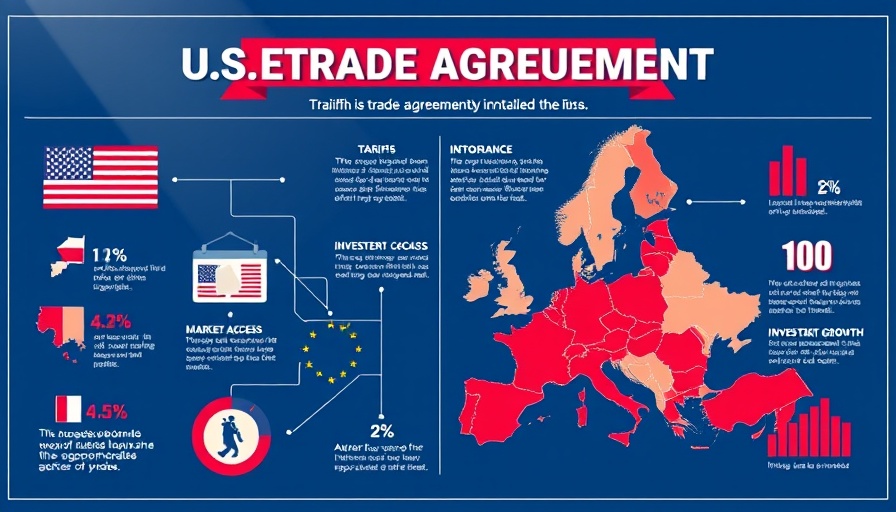
Building Bridges: The New US-EU Trade Framework Agreement
The United States and the European Union recently announced an inspiring step towards strengthening their trade relationship with the introduction of a Framework Agreement on Reciprocal, Fair, and Balanced Trade. This agreement showcases both parties' commitment to creating a fair and beneficial trading environment that aims to invigorate their economies and address existing imbalances.
What's Inside the Agreement?
The agreement outlines several key features aimed at streamlining trade. Most notably, the European Union plans to eliminate tariffs on a variety of U.S. industrial goods while also ensuring preferential market access for an extensive range of U.S. seafood and agricultural products. This will not only promote U.S. goods abroad but also benefit European consumers with more diverse product offerings. On the flip side, the U.S. will apply a higher tariff rate for EU goods, ensuring equitable trade terms for both parties.
The Importance of Fair Trade
This Framework Agreement isn't just about trade; it's a heartening reminder of how collaboration between powerful economies can lead to mutual benefits. By working together, the U.S. and EU can unlock new opportunities for businesses and consumers alike. This partnership represents a vision of growth that prioritizes fairness and equal opportunities across borders.
Looking Ahead: What Does This Mean?
The Framework Agreement serves as a beacon of optimism, illustrating a shared determination to tackle global economic challenges together. As these economic powers unite in their trade aspirations, they pave the way for new markets, jobs, and enhanced economic stability. This agreement symbolizes significant progress that could inspire other countries to foster collaborative trade relationships, nurturing a world where trade is viewed as a bridge rather than a barrier.
The path forward is indeed promising; as negotiations continue, there's potential for evolving this agreement to include further sectors, ensuring that both economies flourish. The commitment from both sides to engage further highlights an unwavering spirit to work through challenges.
 Add Row
Add Row  Add
Add 




Write A Comment